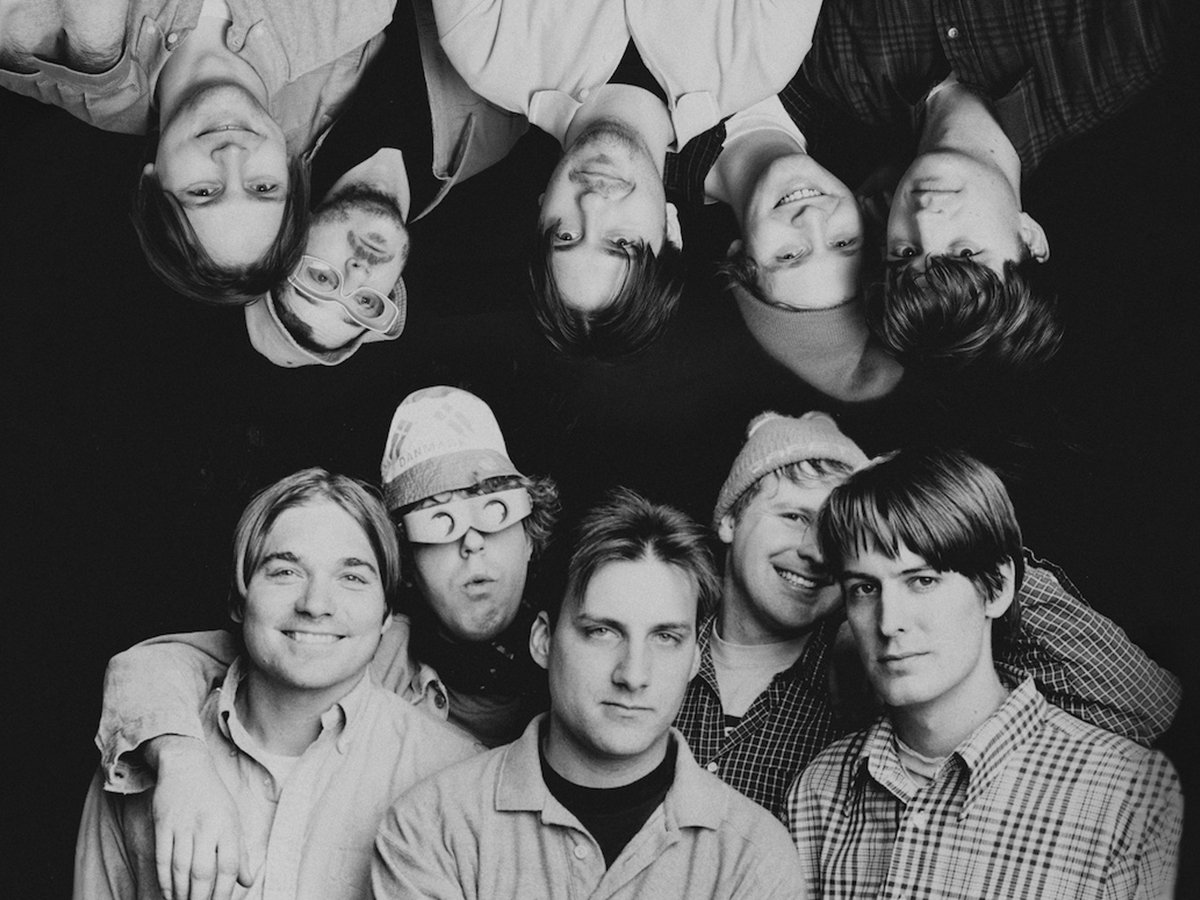
(Credits: Venice Film Festival)
Pavements – Alex Ross Perry
I’ll start with a disclaimer: before I had settled into my cinema seat at the press screening of Pavements, Alex Ross Perry’s unorthodox new documentary about Pavement, I’d never really listened to their music. Of course, I’d heard a few songs, I’d heard the band name, but I’d never delved deeper. These things often fall into a trap. Who are music documentaries for? Only for the fans? The whole point of Pavements was to avoid that, so I was sent in as a test.
“For Pavements, I was always trying to not think about the fans because that’s your worst audience,” Alex Ross Perry told Interview. With this new and admittedly odd movie about Pavement, he was doing everything possible not to make a classic fan-focused music documentary because, as a music fan himself, he was sick of it.
“So few bands want to do anything different now. It’s become so flat and uninteresting. Now it’s all about making a valuable piece of marketing,” he complained, not wanting to chain himself to that narrative. It’s something he’s been trying to avoid doing for a while now. As he’s also been working on a Metallica movie for some time, he’s been thinking this one thought a lot: “I want to make a good movie that grapples with a lot of this and isn’t fan service”.
So given that Pavements is purposefully not fan service, I felt fine to go in blind, to see what I’d learn and simply to find if it holds up as a film for someone outside of the band’s world. In short? It does.
Pavements is odd, really odd. It feels like a music documentary made by Nathan Fielder, as I know that if I had access to my phone, I would have quickly been googling, “Is Pavements real?”, “Was Joe Keery scripted in Pavements?”, “Was the Pavement musical real?”
Because it’s a wild web and you’re never quite sure what’s real or not. Not only does the movie tick the box of giving a good and thorough overview of Pavement, letting me leave the cinema now knowing a lot about the band, aware of a general timeline of their career, and with an insight into key moments and an understanding of the players, but it’s so much more than that. It feels like a movie, more so than a documentary, so I’ll call it that. The movie centres on these three points, all happening at the same moment; Alex Ross Perry is creating Slanted! Enchanted! A Pavement Jukebox Musical, he’s also cast actors who are preparing for their roles in Range Life, a classic biopic of the band, and Pavement, the actual band, are preparing for their actual reunion tour.
It’s a lot, but it’s brilliant. The moments focused on Range Life are genuinely laugh out loud funny, especially the bits showing Joe Keery’s melodramatic journey to becoming Stephen Malkmus, taking the piss out of method actors. There’s a nod towards Austin Butler’s obsessive Elvis transformation as Keery sits stoicly with an accent coach discussing his desire to get a photo of Malkmus’ tongue and later freaking out when he cant stop doing the slurring Stockton, California accent. It’s moments like these that make Pavements a worthwhile movie, totally independent of the band, because it makes it something way bigger.
Obviously, this is a film about Pavement, and it does hinge on real-life footage of the group and always comes back to an investigation into them and their success. But it’s more than that. In fact, I’d say it is a movie about music documentaries as a whole. It’s about music movies, or the way bands’ becomings are mythologised into somewhat of a fictional account, when their art is taken and twisted in that way. That is especially shown in two of the film’s most interesting moments.
The first is merely a gag. At one point, it breaks apart, pauses to show the ‘For Your Consideration’ banner of the movie as a joke about how the Oscars eat music biopics up, layering these fake clips of the fake film with melodramatic piano music as a piss-take of the genre.
The second is a more nuanced critique. After recounting the moment the band were pelted with mud and rocks during a 1995 Lollapalooza show, the screen splits in two. What the audience hears is the scene in Range Life where the band returns to their dressing room and falls into a dramatic depression, once again with some sad music on top as they launch into a heavy conversation about splitting up. But on the other side of the screen, you can see the real-life band joking around. It’s moments like that where Perry shows his focus, and it’s less on the band and more on making things interesting.
“The stories you hear, you know they never add up”: These are the words that appear onscreen at the start of the movie, pulled from the band’s track ‘Frontwards’. As someone who didn’t know the band and so didn’t know the song, that lyric merely became a kind of warning-slash-mission statement for the film. It’s as if Perry is using it to comment on the entire genre of music films, or the entire history of how bands are treated, the way their stories naturally become twisted, dramatised and fictionalised to a degree, over time.
From what I learn from the actual clips of Pavement in the movie, the overwhelming characteristic of the band is just sheer normality. They were a group of utterly normal people just wanting to make music, but found themselves at the centre of a storm of obsession that would never just settle for that. By building such a baffling and interesting nest around them here, bringing in the phoney movie and the wild musical, Perry allows the group to be the most normal part of it. This allows their actual story to be told purely because the entertainment and the drama are elsewhere. Not only is it somewhat genius, it’s also just a lot of fun—even if you’re not a fan.
Related Topics









